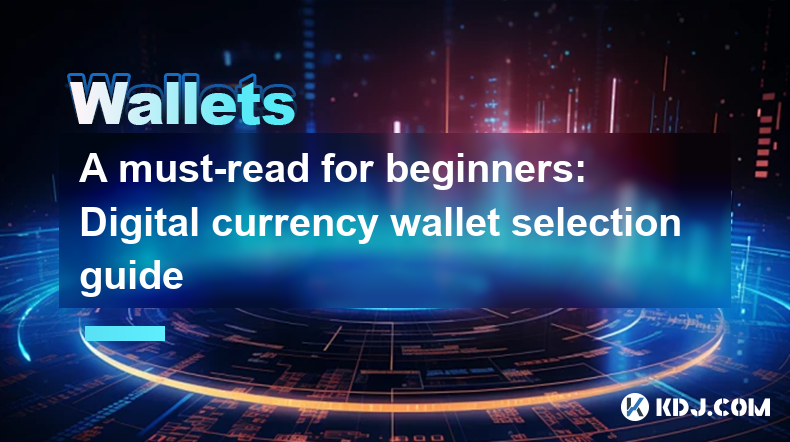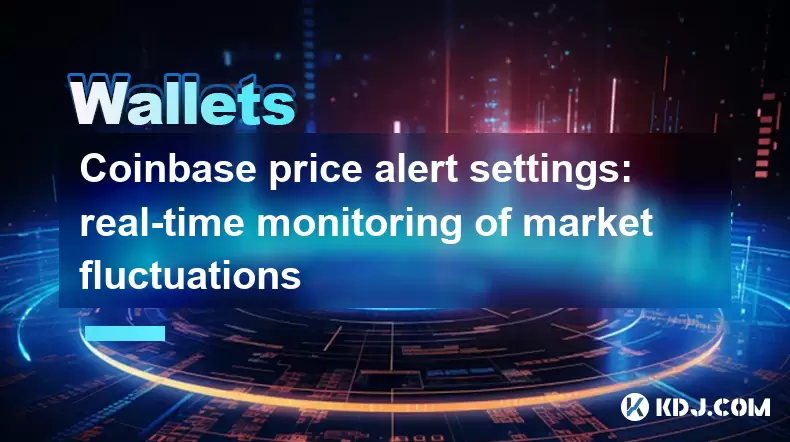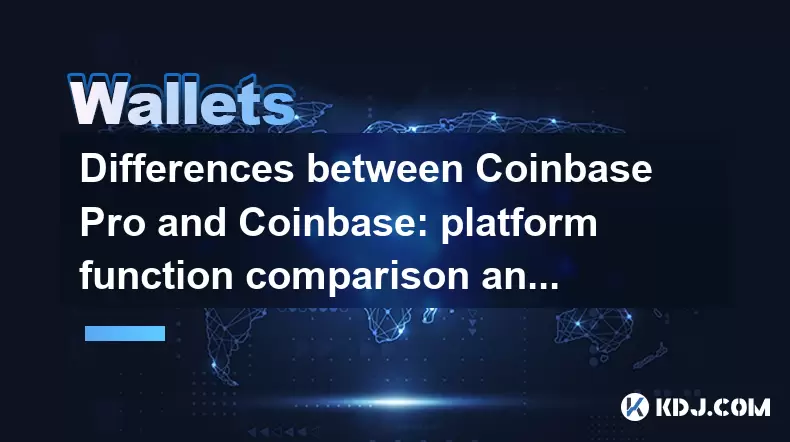-
 Bitcoin
Bitcoin $108,119.2441
0.67% -
 Ethereum
Ethereum $2,453.5972
0.96% -
 Tether USDt
Tether USDt $1.0002
-0.01% -
 XRP
XRP $2.1924
0.16% -
 BNB
BNB $649.9871
0.49% -
 Solana
Solana $151.5089
2.77% -
 USDC
USDC $0.9999
0.00% -
 TRON
TRON $0.2757
0.04% -
 Dogecoin
Dogecoin $0.1647
1.02% -
 Cardano
Cardano $0.5652
0.68% -
 Hyperliquid
Hyperliquid $38.7453
4.64% -
 Bitcoin Cash
Bitcoin Cash $495.2499
-0.34% -
 Sui
Sui $2.8252
3.32% -
 Chainlink
Chainlink $13.4477
2.27% -
 UNUS SED LEO
UNUS SED LEO $9.1413
0.72% -
 Avalanche
Avalanche $18.0719
2.01% -
 Stellar
Stellar $0.2392
0.47% -
 Toncoin
Toncoin $2.8737
1.04% -
 Shiba Inu
Shiba Inu $0.0...01159
1.37% -
 Litecoin
Litecoin $86.7133
1.04% -
 Hedera
Hedera $0.1488
0.33% -
 Monero
Monero $319.1619
1.53% -
 Polkadot
Polkadot $3.4308
2.24% -
 Bitget Token
Bitget Token $4.6349
-0.85% -
 Dai
Dai $1.0000
0.00% -
 Ethena USDe
Ethena USDe $0.9999
-0.03% -
 Uniswap
Uniswap $7.2389
2.16% -
 Aave
Aave $269.9171
5.12% -
 Pi
Pi $0.5335
-0.63% -
 Pepe
Pepe $0.0...09552
1.68%
A must-read for beginners: Digital currency wallet selection guide
For beginners, choosing the right digital currency wallet is crucial for securely managing and storing cryptocurrencies, with options ranging from user-friendly software to highly secure hardware wallets.
Apr 02, 2025 at 11:49 am

Choosing the right digital currency wallet is a crucial step for any beginner entering the world of cryptocurrencies. A wallet not only stores your digital assets but also plays a significant role in the security and management of your investments. With a variety of wallet types available, each offering different features and levels of security, it can be overwhelming to decide which one suits your needs best. This guide aims to simplify the process by breaking down the different types of wallets, their pros and cons, and what to consider when making your choice. Whether you're looking for ease of use, high security, or specific features, this article will help you navigate through the options.
Understanding Different Types of Digital Currency Wallets
Digital currency wallets come in various forms, each designed to cater to different needs and preferences. The main types include software wallets, hardware wallets, paper wallets, and online wallets.
Software Wallets: These are applications that you download and install on your computer or mobile device. They are user-friendly and often come with additional features like built-in exchanges or staking options. Examples include Exodus and Electrum.
Hardware Wallets: These are physical devices that store your private keys offline, offering a high level of security. They are ideal for long-term storage of large amounts of cryptocurrency. Popular hardware wallets include Ledger and Trezor.
Paper Wallets: These involve printing out your public and private keys on a piece of paper. They are considered one of the most secure methods since they are not connected to the internet, but they can be cumbersome to use and are susceptible to physical damage or loss.
Online Wallets: Also known as web wallets, these are hosted on the internet and can be accessed from any device with an internet connection. They are convenient but generally less secure than other types of wallets. Examples include Coinbase and Blockchain.com.
Key Factors to Consider When Choosing a Wallet
When selecting a digital currency wallet, several factors should be taken into account to ensure it meets your needs and provides adequate security.
Security: The level of security offered by a wallet is paramount. Hardware wallets and paper wallets are considered the most secure due to their offline nature, while software and online wallets may be more vulnerable to hacking.
Ease of Use: If you're new to cryptocurrencies, you might prefer a wallet with a user-friendly interface. Software wallets and some online wallets are typically easier to navigate than hardware wallets.
Supported Cryptocurrencies: Not all wallets support every type of cryptocurrency. Make sure the wallet you choose supports the digital currencies you plan to hold.
Backup and Recovery Options: Look for wallets that offer robust backup and recovery options. This can be crucial in case you lose access to your wallet.
Cost: Some wallets, particularly hardware wallets, come with a cost. Consider whether the added security is worth the expense for your needs.
Additional Features: Some wallets offer extra features like staking, built-in exchanges, or integration with decentralized applications (dApps). These can be valuable depending on your investment strategy.
Software Wallets: Pros and Cons
Software wallets are popular among beginners due to their ease of use and accessibility. Here are some of the pros and cons to consider:
Pros:
- User-Friendly: Software wallets often have intuitive interfaces that make them easy to use, even for those new to cryptocurrencies.
- Convenience: They are readily accessible on your computer or mobile device, allowing you to manage your cryptocurrencies on the go.
- Additional Features: Many software wallets come with extra features like staking, built-in exchanges, or integration with dApps, enhancing their utility.
Cons:
- Security Risks: Since software wallets are connected to the internet, they are more susceptible to hacking and malware attacks.
- Dependence on Device: If your device is lost, stolen, or damaged, you could lose access to your wallet unless you have a secure backup.
Hardware Wallets: Pros and Cons
Hardware wallets are favored by those who prioritize security, especially for storing large amounts of cryptocurrency. Here are the pros and cons:
Pros:
- High Security: Hardware wallets store your private keys offline, making them highly resistant to hacking and malware.
- Long-Term Storage: Ideal for holding cryptocurrencies for the long term, as they are less likely to be compromised.
- Backup and Recovery: Most hardware wallets offer robust backup and recovery options, ensuring you can regain access to your funds if needed.
Cons:
- Cost: Hardware wallets can be expensive, with prices ranging from $50 to $200 or more.
- Learning Curve: They can be more complex to set up and use, especially for beginners.
- Portability: While portable, they are physical devices that you need to carry with you if you want to access your funds on the go.
Paper Wallets: Pros and Cons
Paper wallets are a simple and secure way to store cryptocurrencies, but they come with their own set of challenges. Here are the pros and cons:
Pros:
- High Security: Since paper wallets are offline, they are immune to hacking and malware attacks.
- Cost-Effective: They are essentially free to create, requiring only a printer and paper.
- No Dependence on Technology: You don't need a computer or internet connection to store your keys, making them ideal for those who want to avoid digital risks.
Cons:
- Physical Vulnerability: Paper can be damaged by water, fire, or wear and tear, potentially leading to loss of funds.
- Inconvenience: Using a paper wallet involves manually entering your private key each time you want to make a transaction, which can be cumbersome.
- Security Risks in Creation: If not generated securely, paper wallets can be compromised during the creation process.
Online Wallets: Pros and Cons
Online wallets offer convenience and accessibility but come with their own set of trade-offs. Here are the pros and cons:
Pros:
- Convenience: You can access your funds from any device with an internet connection, making them highly convenient.
- User-Friendly: Many online wallets have intuitive interfaces that are easy to navigate, even for beginners.
- Additional Services: Some online wallets offer additional services like built-in exchanges or staking options.
Cons:
- Security Risks: Since they are connected to the internet, online wallets are more vulnerable to hacking and phishing attacks.
- Dependence on Third Parties: You are reliant on the security measures of the wallet provider, which can be a risk if they are compromised.
- Privacy Concerns: Some online wallets may require personal information, raising privacy concerns.
How to Choose the Right Wallet for You
Choosing the right wallet depends on your specific needs and priorities. Here are some steps to help you make an informed decision:
Assess Your Security Needs: If security is your top priority, consider a hardware or paper wallet. If you're willing to trade some security for convenience, a software or online wallet might be more suitable.
Consider Your Level of Experience: Beginners might prefer the user-friendly interfaces of software or online wallets. More experienced users might opt for the added security of hardware wallets.
Evaluate the Cryptocurrencies You Plan to Hold: Ensure the wallet supports all the cryptocurrencies you intend to store. Some wallets are limited to specific coins or tokens.
Think About Your Investment Strategy: If you plan to actively trade or use your cryptocurrencies frequently, a software or online wallet might be more convenient. For long-term storage, a hardware wallet could be a better choice.
Review the Wallet's Reputation and Reviews: Look for wallets with a strong reputation and positive user reviews. This can give you confidence in their reliability and security.
Consider the Cost: If budget is a concern, software and online wallets are generally free, while hardware wallets come with a cost. Weigh the cost against the added security they offer.
Common Questions About Digital Currency Wallets
Q: What is the most secure type of digital currency wallet?
A: The most secure type of digital currency wallet is generally considered to be a hardware wallet. These devices store your private keys offline, making them highly resistant to hacking and malware. Paper wallets are also very secure due to their offline nature, but they can be more cumbersome to use and are susceptible to physical damage.
Q: Can I use multiple types of wallets?
A: Yes, you can use multiple types of wallets. Many cryptocurrency users have a combination of wallets for different purposes. For example, you might use a hardware wallet for long-term storage of large amounts of cryptocurrency and a software wallet for daily transactions and trading.
Q: How do I back up my digital currency wallet?
A: The method for backing up your wallet depends on the type of wallet you are using. For software wallets, you typically need to save your recovery phrase or seed phrase in a secure location. Hardware wallets also provide a recovery phrase that you should store safely. Online wallets may offer backup options through their platform, but always ensure you follow their specific instructions.
Q: Are online wallets safe to use?
A: Online wallets can be safe to use if you choose a reputable provider and take necessary security precautions. However, they are generally considered less secure than hardware or software wallets because they are connected to the internet and more vulnerable to hacking. Always use strong passwords, enable two-factor authentication, and be cautious of phishing attempts.
Q: What should I do if I lose access to my wallet?
A: If you lose access to your wallet, the first step is to use your backup or recovery phrase to regain access. If you don't have a backup, your options are limited and you may lose your funds permanently. This is why it's crucial to always create and securely store a backup of your wallet.
Q: Can I store multiple cryptocurrencies in one wallet?
A: Many wallets support multiple cryptocurrencies, but not all do. Before choosing a wallet, check its list of supported cryptocurrencies to ensure it can store all the digital assets you plan to hold. Some popular multi-currency wallets include Ledger, Trezor, and Exodus.
Q: How do I transfer cryptocurrencies between wallets?
A: To transfer cryptocurrencies between wallets, you need to know the recipient wallet's public address. Here's how you can do it:
- Open your sending wallet and select the cryptocurrency you want to transfer.
- Enter the recipient's public address in the "Send" or "Transfer" section.
- Specify the amount you want to send.
- Confirm the transaction details and any associated fees.
- Complete the transaction and wait for it to be processed on the blockchain.
Q: What are the fees associated with using a digital currency wallet?
A: Fees associated with digital currency wallets can vary. Some common fees include:
- Transaction Fees: These are fees charged by the blockchain network for processing transactions. They vary depending on the cryptocurrency and network congestion.
- Wallet Service Fees: Some online wallets may charge fees for their services, such as account maintenance or withdrawal fees.
- Exchange Fees: If your wallet has a built-in exchange, there may be fees for converting one cryptocurrency to another.
Always check the fee structure of the wallet you are considering to understand any potential costs.
Q: How can I protect my digital currency wallet from theft?
A: To protect your digital currency wallet from theft, follow these best practices:
- Use Strong Passwords: Choose complex passwords and change them regularly.
- Enable Two-Factor Authentication (2FA): This adds an extra layer of security to your wallet.
- Keep Software Updated: Regularly update your wallet software to protect against vulnerabilities.
- Be Wary of Phishing: Always verify the authenticity of websites and emails before entering your wallet information.
- Use Cold Storage: For long-term storage, consider using a hardware or paper wallet to keep your private keys offline.
- Secure Your Backup: Store your recovery phrase or seed phrase in a safe, offline location.
Q: Can I recover my funds if my hardware wallet is lost or damaged?
A: Yes, you can recover your funds if your hardware wallet is lost or damaged, provided you have your recovery phrase. Use the recovery phrase to set up your wallet on a new device or through the wallet's software interface. Always ensure your recovery phrase is stored securely and not accessible to others.
Disclaimer:info@kdj.com
The information provided is not trading advice. kdj.com does not assume any responsibility for any investments made based on the information provided in this article. Cryptocurrencies are highly volatile and it is highly recommended that you invest with caution after thorough research!
If you believe that the content used on this website infringes your copyright, please contact us immediately (info@kdj.com) and we will delete it promptly.
- Bitcoin Wallets: Safeguarding Your Cryptocurrency Assets Like a New Yorker
- 2025-06-29 16:50:12
- Dogwifhat, Crypto Rally, and the Unexpected Challenger: A Meme Coin Mania?
- 2025-06-29 16:30:12
- Pi Network's Token Unlock: Sell-Off Fears or Future Fuel?
- 2025-06-29 16:30:12
- Altcoin Update: Vitalik Buterin on Major Changes in Governance and Digital Identity
- 2025-06-29 17:07:13
- Stablecoins, Crypto, and Ethereum: A 2025 Perspective
- 2025-06-29 17:30:12
- Altcoins in Focus: Remittix Steals the Show as Pepe Coin Gains Traction
- 2025-06-29 17:30:12
Related knowledge

Coinbase price alert settings: real-time monitoring of market fluctuations
Jun 29,2025 at 07:00am
Setting Up Coinbase Price AlertsTo begin real-time monitoring of market fluctuations on Coinbase, users can utilize the built-in price alert feature. This function allows you to receive notifications when a cryptocurrency reaches a specific price point. To access this setting, open the Coinbase app or log in via the web platform. Navigate to the 'Prices...

How to stake cryptocurrencies on Coinbase? Benefits and risks
Jun 27,2025 at 06:36pm
Understanding Cryptocurrency Staking on CoinbaseStaking cryptocurrencies involves locking up digital assets to support the operations of a blockchain network, typically in return for rewards. Coinbase, one of the most popular cryptocurrency exchanges globally, offers staking services for several proof-of-stake (PoS) coins. Users can stake their holdings...

Differences between Coinbase Pro and Coinbase: platform function comparison and analysis
Jun 29,2025 at 08:21am
Overview of Coinbase and Coinbase ProWhen exploring the cryptocurrency trading landscape, users often encounter two platforms under the same parent company: Coinbase and Coinbase Pro. While both are operated by the same organization, they cater to different types of users and offer varying features. Coinbase is primarily designed for beginners and casua...

How to contact Coinbase customer service? Support channels and response times
Jun 28,2025 at 01:29pm
Contacting Coinbase Customer Service: Support Channels and Response TimesIf you're a user of Coinbase, reaching their customer service team may become necessary for various reasons, such as account verification issues, transaction disputes, or technical difficulties. Understanding the different support channels available and what to expect in terms of r...

Coinbase advanced trading function usage tutorial: limit orders and market orders
Jun 28,2025 at 09:07pm
Understanding the Difference Between Limit Orders and Market OrdersWhen using Coinbase's advanced trading features, it is crucial to understand the fundamental difference between limit orders and market orders. A market order executes immediately at the best available price on the market. This type of order ensures that your trade goes through quickly, ...

How to sell Bitcoin on Coinbase? Detailed transaction steps
Jun 29,2025 at 04:22am
Setting Up Your Coinbase Account for TransactionsBefore you can sell Bitcoin on Coinbase, you must ensure your account is fully set up and verified. Coinbase requires identity verification to comply with regulatory standards. This process involves uploading a government-issued ID, confirming your address, and sometimes submitting a selfie holding the ID...

Coinbase price alert settings: real-time monitoring of market fluctuations
Jun 29,2025 at 07:00am
Setting Up Coinbase Price AlertsTo begin real-time monitoring of market fluctuations on Coinbase, users can utilize the built-in price alert feature. This function allows you to receive notifications when a cryptocurrency reaches a specific price point. To access this setting, open the Coinbase app or log in via the web platform. Navigate to the 'Prices...

How to stake cryptocurrencies on Coinbase? Benefits and risks
Jun 27,2025 at 06:36pm
Understanding Cryptocurrency Staking on CoinbaseStaking cryptocurrencies involves locking up digital assets to support the operations of a blockchain network, typically in return for rewards. Coinbase, one of the most popular cryptocurrency exchanges globally, offers staking services for several proof-of-stake (PoS) coins. Users can stake their holdings...

Differences between Coinbase Pro and Coinbase: platform function comparison and analysis
Jun 29,2025 at 08:21am
Overview of Coinbase and Coinbase ProWhen exploring the cryptocurrency trading landscape, users often encounter two platforms under the same parent company: Coinbase and Coinbase Pro. While both are operated by the same organization, they cater to different types of users and offer varying features. Coinbase is primarily designed for beginners and casua...

How to contact Coinbase customer service? Support channels and response times
Jun 28,2025 at 01:29pm
Contacting Coinbase Customer Service: Support Channels and Response TimesIf you're a user of Coinbase, reaching their customer service team may become necessary for various reasons, such as account verification issues, transaction disputes, or technical difficulties. Understanding the different support channels available and what to expect in terms of r...

Coinbase advanced trading function usage tutorial: limit orders and market orders
Jun 28,2025 at 09:07pm
Understanding the Difference Between Limit Orders and Market OrdersWhen using Coinbase's advanced trading features, it is crucial to understand the fundamental difference between limit orders and market orders. A market order executes immediately at the best available price on the market. This type of order ensures that your trade goes through quickly, ...

How to sell Bitcoin on Coinbase? Detailed transaction steps
Jun 29,2025 at 04:22am
Setting Up Your Coinbase Account for TransactionsBefore you can sell Bitcoin on Coinbase, you must ensure your account is fully set up and verified. Coinbase requires identity verification to comply with regulatory standards. This process involves uploading a government-issued ID, confirming your address, and sometimes submitting a selfie holding the ID...
See all articles

























































































